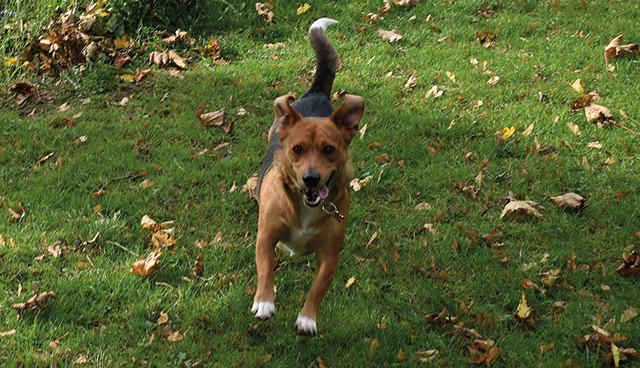
While the pandemic has affected almost every aspect of human life imaginable, the impact it may have had on our furry friends is less obvious.
Pets are just one example of how amusing the bizarre crossover of work and home from March onwards has been- everyone is more upbeat when they glimpse a hapless terrier or cheeky feline causing chaos in the background of someone else’s Zoom screen.
However, lockdown has resulted in changes to pet behaviour that are worthy of attention, particularly as Halloween approaches.
There is evidence that dogs, in particular, are suffering from only interacting with those in their household. Suzi Walsh, an animal behavioural expert and founder of dogbehaviour.ie, believes the lack of socialisation is derailing many dogs’ development.
“Dogs are not allowing people come into the home because they were adopted or bought during lockdown and for them, the first months or weeks of their lives, no one came into the house except for the family that they know. They’re terrified of someone coming in” said Walsh.
This anxiety, best corrected by gradually allowing a dog to get comfortable with outsiders, is difficult to confront due to the current restrictions on household visits. Reassuringly, however, the first lockdown wasn’t all doom and gloom for animals, something us humans may be less likely to identify with.
While the accounts of increased ‘dognapping’ nationwide are difficult to stomach, one positive that has emerged is heightened vigilance surrounding animal safety, with less reports of dogs being abandoned in back gardens since March. Furthermore, most new pets benefited hugely from their owners’ constant presence at home while they were settling in.
Walsh maintains that, as a result of this, the risk of separation anxiety is not any higher now than it would be under normal circumstances. Separation vs Isolation Anxiety is surprisingly common in both dogs and cats.
The symptoms of anxiety in pets are similar to those exhibited by humans, including stress, lack or increase of appetite, behaviour issues and hair loss.
Interestingly, it is less apparent in dogs that reside in animal shelters with larger groups of animals. “It is not something the dogs in our facility display as they have constant company during the day with staff and other dogs,” Aideen, an ISPCA staff member, notes.
The term separation anxiety, which refers to an animal becoming distressed in the absence of a specific person, is relatively uncommon in pets.
Dogs are more likely to experience agitation when left alone in general, regardless of the individual, which is known as isolation distress. “There’s a big difference between the two and mostly with separation anxiety, which is the worst one, the dog would need anti-anxiety medication a lot of the time,” Walsh explains.
While this may seem like an unnecessary precaution for an animal, it may be warranted in some cases post lockdown when a severely anxious pet must contend with being left alone for large portions of the day. While they may benefit from increased human contact in the home, Halloween this year was no less debilitating for frightened pets.
Due to a lack of awareness it is loud and clear that fireworks were still a part of this year’s festivities, in spite of the restrictions on Halloween gatherings. Walsh mentions having gotten calls from as early as this September from concerned pet owners on their dogs’ distress at the noise.
An estimated 70 per cent of pets exhibit agitated behaviour upon fireworks being repeatedly set off, and unfortunately the sound can be painful for animals with highly sensitive hearing, mainly cats and dogs. Gillian explains that pet owners’ lack of awareness on the subject can be part of the problem.
“Not only are many owners unaware how to help their pets with firework fears, it is believed that many are unable to spot the signs that their pets are unhappy or stressed.”
Fortunately, there’s a lot that can help alleviate a pet’s distress. The expertise of dog behaviourists is considered highly beneficial in tackling the problem. Additionally, recommendations from the DSPCA, such as tiring your dog out by taking them for a long walk on Halloween afternoon, are considered effective.
Their training page online gives plenty of helpful advice for anxious dogs. “There is also a fantastic link on our dog
training page to sounds of fireworks that you can play for your pets to get them acclimatised,” Gillian says.
While Halloween and lockdown causes pets a certain amount of distress, an understanding of animal anxiety and access to the right resources ensures our fluffy companions can remain protected.
Róisín Butler
Image Credit: Ali Clairr
